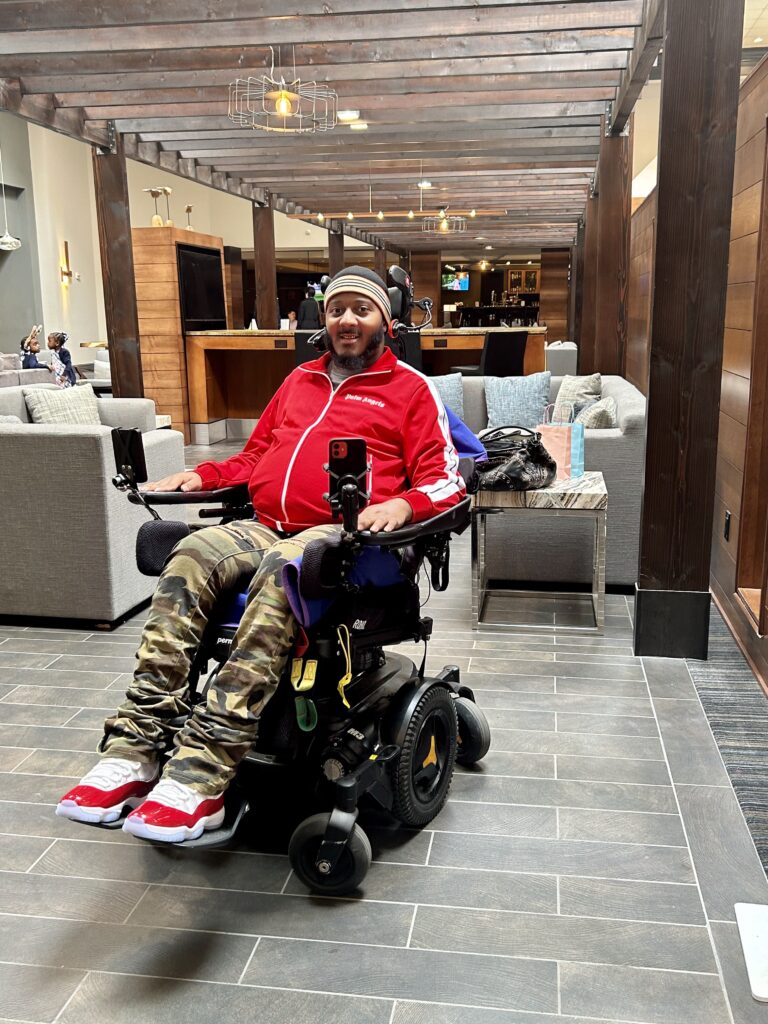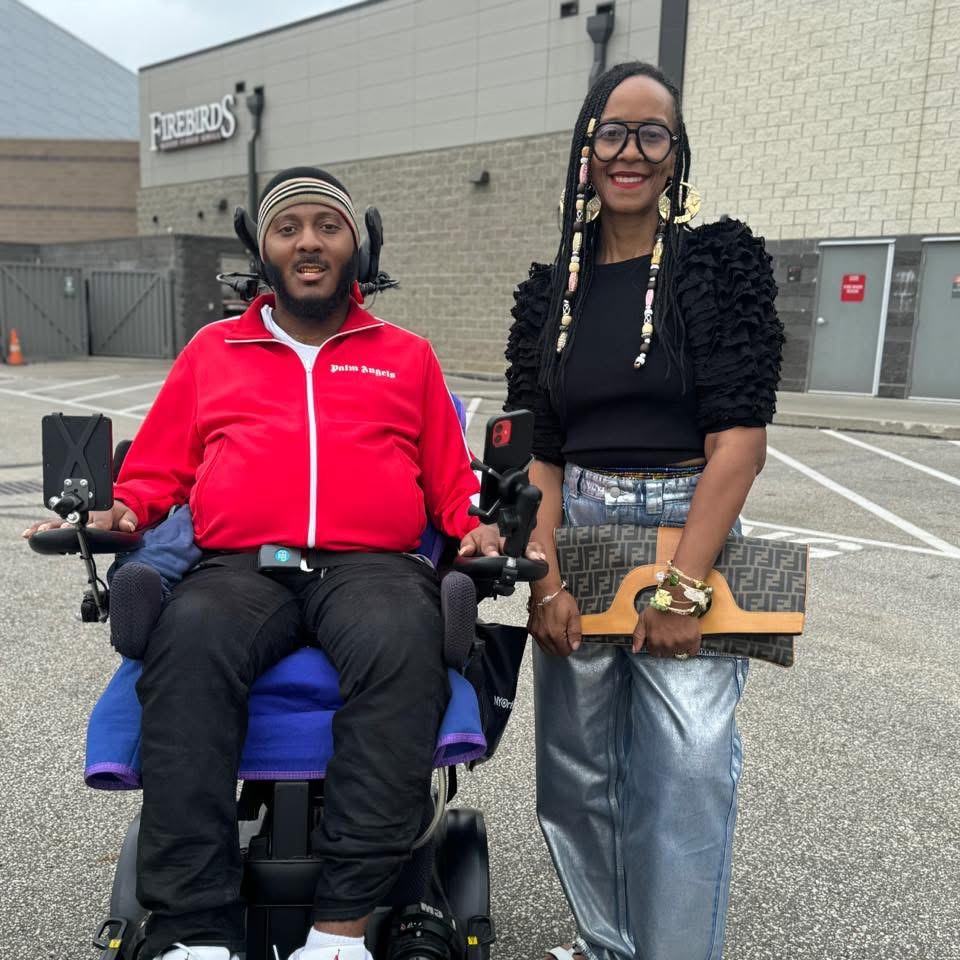On February 9, 2020, Eric Tyson’s life changed in an instant. Just returning from a drive—his routine as a truck driver—he was caught in a moment of violence that would alter the course of his life forever. A person with whom he had a minor disagreement, under the influence of drugs, found Eric at a bar and opened fire. Eric was shot multiple times and rushed to MetroHealth, where doctors fought to save his life. “They had to bring me back,” he recalls. “I had multiple surgeries—I almost didn’t make it.”

When Eric woke up, he couldn’t talk or breathe on his own. A tracheotomy and ventilator kept him alive, but also meant that even speaking was out of reach. It took months of hard work and rehabilitation just to learn how to breathe and talk again. That, he says, was the first big milestone in a long journey. Eric had suffered a C3 spinal cord injury, a life-altering condition that came with immense physical and emotional challenges.
“Life since rehab has been hard,” Eric admits. “I’ve been trying to find a sense of normalcy. Just being out in public is tough—people stare, and that’s hard to get used to. The anxiety of being around people again was real.”
One of Eric’s toughest conversations was with his kids—seven-year-old twins. “It was difficult to explain everything to them in a way they could understand,” he says. “It gets emotional. But they love me regardless, and that’s everything.”
Through all the challenges, one person has been by his side every step of the way—his mother. She has been instrumental in his care, learning new skills and helping him manage day-to-day life in a world that often lacks the resources to support people with spinal cord injuries. “When I left rehab, we didn’t have a lot of guidance,” Eric explains. “We had to find everything ourselves.”

Eric uses a head-controlled power wheelchair, which he finds more manageable than the sip-and-puff option he initially tried. “The sip-and-puff chair was harder to use—especially with limited lung capacity. The head-controlled one took some getting used to, but now I’m a pro at it.” His twins even enjoy riding on his lap as he navigates around. Still, managing the equipment is a challenge. “Everything needs a prescription. Repairs can take weeks or even months.”
Despite the hurdles, Eric is focused on his mental and spiritual well-being. “This lifestyle is a mental game. You’ve got to keep your mind right. Your faith—whatever it may be—is important too. You can’t control much, so learning to let go and stay calm is key.”

Eric is still working to stabilize his health, battling secondary complications that come with SCI, but his long-term vision is clear: he wants to give back. “I want to be there for others going through this. I didn’t have that support when I got hurt, and I want to be a resource now. If I can help someone not feel alone, then it means everything.”
Eric’s journey is one of resilience, reflection, and rising from unimaginable circumstances. He continues to push forward—not just for himself, but for his family, and for others who may one day need his strength.
